




The MTASA supports professionalism among music teachers, sponsors performance and composition competitions for students, offers an array of resources for members, and assists teachers and students in their educational pursuits. The benefits of joining are
● Networking with local teachers and other students
● Recitals for young students studying with members

● Judging opportunities at events for all age students on all instruments
● Collaborations with local area music teachers
● Outstanding Professional Learning opportunities throughout the year
● Webinars on a variety of topics throughout the year
IIt is no secret that our flagship events, which occur alternatively biennially, the Summer Conference and Summer Professional Development day, are what we look forward to the most.
Just like when you see a duck gliding gracefully across the water, and you don’t see the legs kicking furiously beneath the surface, that’s how the MTASA runs when preparing for these events! Mind you, it’s with much joy, camaraderie and excitement that we prepare for the big events. The MTASA Council is a terrific team.
On Sunday 13 November, we warmly invited members to come along to our AGM, listen to our report, see what we have done, and get excited about what we are planning. It was also just magical to convene for dinner afterwards.
What we would love the most is to see our members at the upcoming Summer Professional Learning Day on January 25, 2023, Hartley Concert Room, University of Adelaide. Check your inbox for exciting information regarding a terrific day of talks and workshops.
With all best wishes,
Sofie Arhontoulis, President MTASA
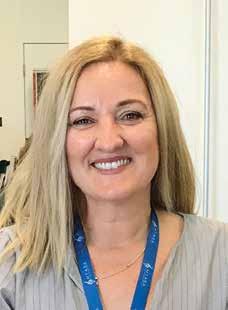
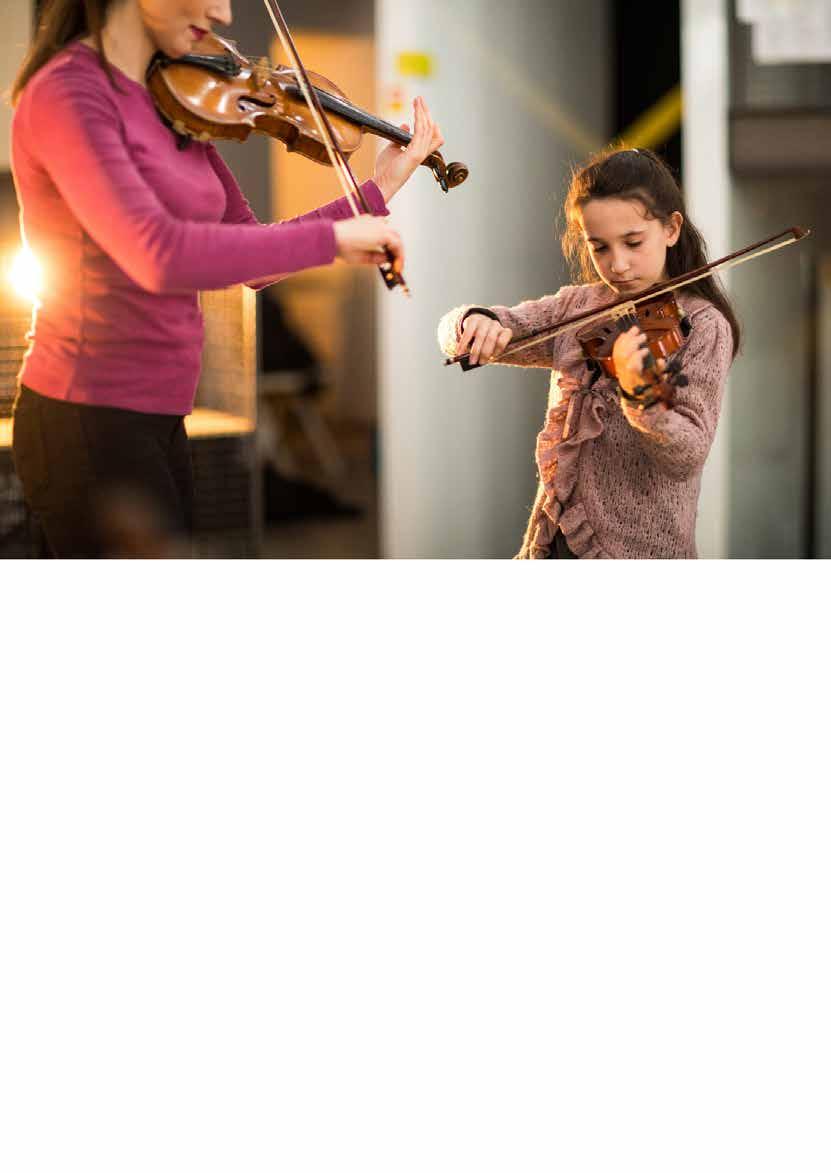
Wednesday, 25 January
Professional Learning Day
Hartley Concert Room, The University of Adelaide
9.00 am - 5:00 pm
Via Eventbrite
Reading music: cherished skill or formidable barrier for students.
Approximately 8 hours of presentations and workshops addressing one of the big negatives that can spoil a budding musical friendship for some students.
Saturday, 22 April
Concert Performance Day 1
Flinders Street Baptist Church 1:30 pm, 3.00 pm, 4:30 pm
Via Eventbrite
The 2023 membership fees are:
Full member : $125 Associate : $115 Student member : $62 Friend : $33 Institution : $33
Concert Performance Day 2
Flinders Street Baptist Church 2:30 pm, 4:00 pm
Via Eventbrite
The following teaching rates are recommended to members by the MTASA Council for 2023.
Full member : $80 per hour Student member : $55 per hour
Competition Day (Miriam Hyde Awards)
TBC 9.00 am, 1.00 pm Via Eventbrite
Sunday, 25 June September TBC Sunday 12 November
AGM
Spyridon College
pm
Eventbrite
for 2022/2023 was due on June 30. Subscription renewal notices were sent in late June via e-mail to remind members to log in and renew their membership for the 2022/2023 financial year. If you are a Full member you will be asked to indicate that you have completed seven hours of Professional Learning during the previous twelve months. If you don’t receive an e-mail please check your spam folder. You can log in at any time to renew your membership. If it seems that you didn’t receive an e-mail, have forgotten your username or are having problems logging in please contact the Secretary. Paper invoices were sent to members who prefer to receive them.
Full members of the Music Teachers’ Association of South Australia may use the letters MMTA (member of Music Teachers’ Association) as a post-nominal while they are financial members. Interstate Music Teachers Associations are also encouraging their members to use this or a similar post-nominal.
MTASA has introduced a Professional Learning scheme for Full members. This commenced on July 1, 2019 when Full members began accumulating their seven hours of Professional Development. The scheme is designed to underpin and enhance MTASA’s established reputation for the professional excellence of its members, ensuring its standards are fully compliant with current educational expectations. These are clearly outlined in the Australian Professional Standards for Teachers (visit www.aitsl.edu.au/teach/standards) and similar documents.
From July 1, 2020 onwards Full members, when renewing their membership, will be asked to tick a box declaring that they have undertaken at least seven hours of Professional Learning during the previous twelve months.
The following examples are provided to give general guidance for Full members about Professional Learning that would be acceptable to MTASA.
These examples represent only a small sample of all the possibilities available to Full members. Generally Full members should feel comfortable about their own choices but in case of doubt you are welcome to contact the Secretary for further advice (info@mtasa.com.au).
Improved music teaching should be a major factor in all activities that Full members wish to count towards their MTASA Professional Learning.
MTASA will undertake random checks from time to time to ensure the system is working properly. So, on very rare occasions a Full member may receive a request from the Secretary for information about their Professional Learning. In such instances you may submit evidence such as certificates, programs, diary notes, recordings and so forth.
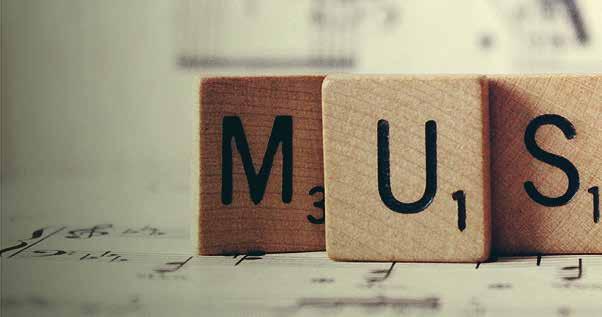
1. Online.
Attending a webinar or similar event; undertaking an online e-learning course.

2. Face-to-Face.
Attending a conference, workshop, masterclass or lecture.
3. Formal Study.
Undertaking a qualification or part-qualification delivered by a recognised institution.

4. Personal Research.
Studying books, journals, articles, musical scores, musical theory, analysis, etc., which lead to an example of improved music pedagogy and/or pupil performance.
Self-conducted research leading to a presentation, masterclass or workshop at a conference.
Composing an educational piece of music that motivates a group of pupils.
5. Team Research.
A joint project with others that achieves particular improvements in a training ensemble.
Joint creation of music teaching materials that improve learning in a group of pupils.
Remember! These are only a few amongst many possibilities. MTASA is a community of creatives. You are encouraged to be creative in your Professional Development!
As a member of Educators SA, MTASA can offer benefits to its members. Here are some offers:
Andersons Solicitors offer MTASA members:
• 10% off legal services, in ALL areas.
• Free initial phone conversation with a lawyer.
When contacting Andersons Solicitors tell them you are a member of MTASA, which is a member organisation of Educators SA (CEASA). Visit the website at www.andersons.com.au/.
Credit Union SA has a range of education only offers. Visit the website at www.creditunionsa.com. au/community/education-communitybanking-benefits/ for more information.
Have you fulfilled the requirements for Full Membership? Student members are reminded that Student membership is restricted to four years after which time it is expected that they would be eligible for another membership category, either Full Membership by Tertiary Study or Full Membership by RPL (Recognition of Prior Learning and Experience).
Student members who are ready to upgrade their membership are invited to submit an application form to the Secretary together with the required supporting documents. Criteria can be downloaded from the MTASA website (www.mtasa.com.au) or obtained from the Secretary (info@mtasa.com.au).
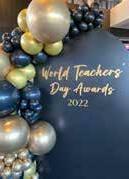
What a fantastic celebration of educators in SA.
Educators SA World Teachers’ Day Awards ceremony saw 63 awards presented to outstanding educators from all sectors and all aspects of education.
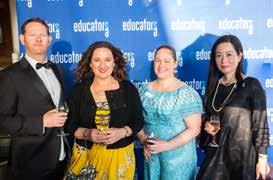
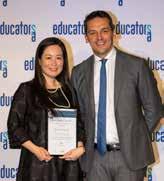
From the outstanding graduates of our universities to the Minister’s Languages and Arts awardees, from innovative association of the year to our extraordinary contributors to professional associations, all had the chance to receive their awards from the Minister or the Chief Executive of the Department for Education in front of 270 invited guests.
A great night to celebrate great educators and a great profession and all they contribute to our children and young people. Our “hats are off” to all Educators in South Australia.
Want to know who the outstanding educators in our state are? Click here to see all the winners of the prestigious awards!
Taken from https://educators-sa.sa.edu.au/news-and-events/world-teachers-day-awards-ceremony-2022/
https://blitzbooks.com/how-much-should-my-child-practice/
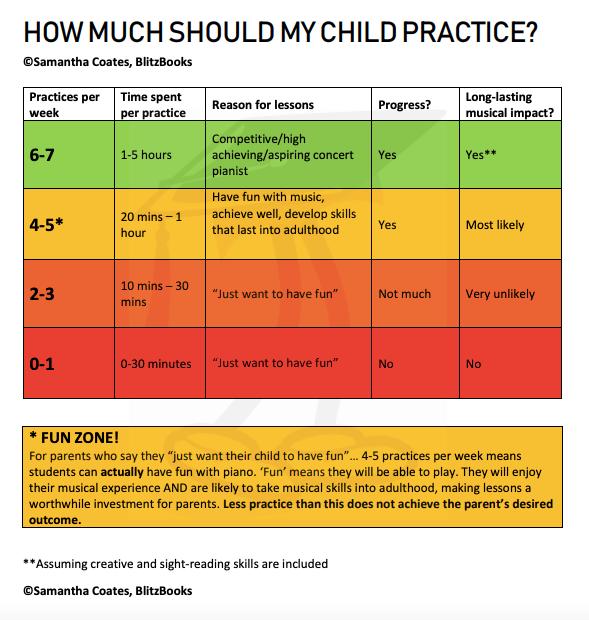 EDUCATORS SA
Photos by Neil Jacobs from Church Hill Films
EDUCATORS SA
Photos by Neil Jacobs from Church Hill Films
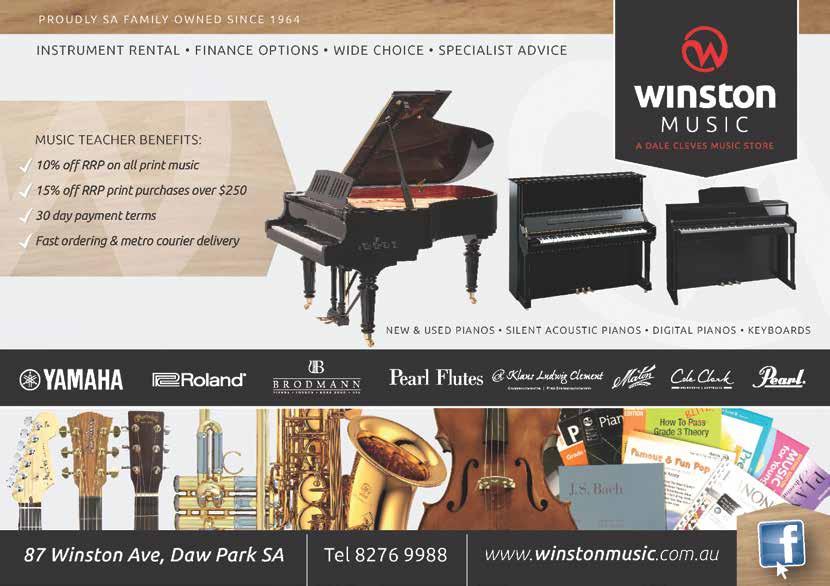
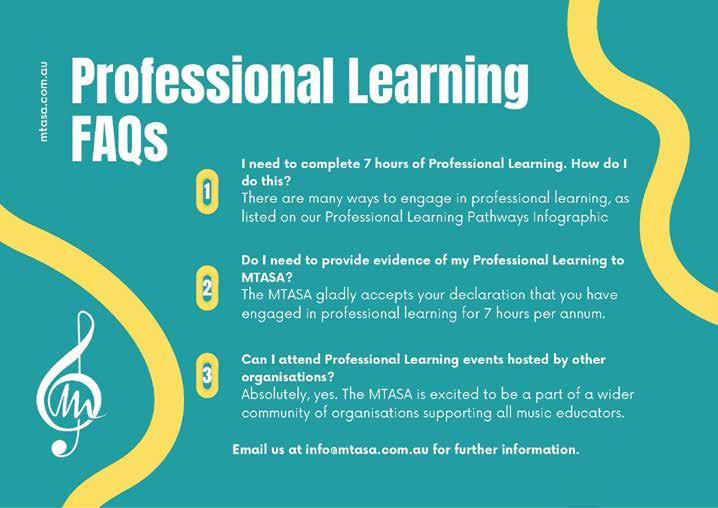
New Legislation regarding Child Protection was introduced with effect from September 1, 2019. A ‘Police Check’ is now known as a ‘Working With Children Check’ (WWCC). The Working With Children Check is the most comprehensive check that exists. Anyone found guilty of breaching this legislation can be fined up to $120,000.
People working or volunteering with children in South Australia must, by law, have a Working With Children Check. A DHS/DCSI child-related check will be recognised as a Working With Children Check until it expires.
People need a Working With Children Check if they are in a ‘prescribed position’. This means people who are in paid or volunteering roles where it is reasonably foreseeable that they will work with children; run or manage a business where the employees or volunteers work with children; are employed to provide preschool, primary or secondary education to a child.
A Working With Children Check is needed for all schools (Government, Catholic and Independent).
For further information go to www.screening. sa.gov.au/types-of-check/new-working-withchildren-checks.
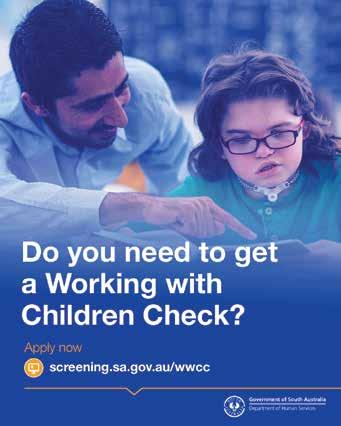
Enthusiastic volunteers are needed to help with various jobs at MTASA events. Tasks include setting up the venue, helping with registration at the check in table, ushering, assisting performers, helping with meals, and packing up afterwards.
It is a great way to network and a volunteering certificate will be provided, which will enhance your CV!
For more information, please e-mail the Secretary at info@mtasa.com.au.
In recent years each issue of SA Music Teacher has included an article about music teaching in a country region of South Australia. There are some regions that haven’t been visited yet. If you haven’t done so please write something – it doesn’t need to be very long – and also include a photo. If you have written something before you are welcome to send an update. E-mail the Secretary at info@mtasa.com.au.
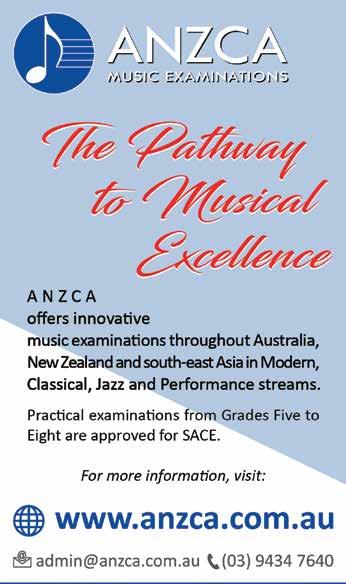
Visit mtasa.com.au/index.php/members/becomea-member/ to join MTASA.
Current Full, Student or Associate Members are not required to submit any supporting documentation to continue their MTASA membership. Anyone applying for Full Membership (either Tertiary Level Qualification and Study or Recognition of Prior Learning and Experience) or Student Membership for the first time must fulfil all of the requirements listed and submit the appropriate supporting documentation. Associate Membership is no longer being offered but those who were Associate Members on September 24, 2017, can continue their membership provided they remain as financial members. Full Membership (Recognition of Prior Learning and Experience) has replaced General Membership.
MTASA Members are always encouraged to write to the Secretary about any concerns that they may have. The MTASA Council will consider your request.
To be listed in the ‘The Directory of Teachers of Music’ on the MTASA website as a teacher of theory/musicianship applicants for Full or Student membership must supply evidence of having completed studies in this field to at least AMEB 5th Grade theory/musicianship standard or equivalent. Full, Student or Associate MTASA members wishing to have theory and/or musicianship included in their Directory listing should send copies of the relevant certificates to the Secretary (info@mtasa.com.au).
The Editor is always looking for things to include in SA Music Teacher. Articles can be about any music related topic. If you would like to write an article this is your invitation! A helpful hint, a comment, a joke, a poem, a cartoon, etc. … please e-mail them to the Secretary at info@mtasa.com.au.
MTASA Members, free. Non-members, $17. Please contact the Secretary (info@mtasa.com.au) about
In this informative webinar the MTASA treasurer, shared insights, and information to help members prepare their 2022 Tax Returns and beyond.
Topics included: Current Updates from the ATO. Most Common Tax deductions and Where to Put Them.
Common Business Structures for Music Teachers. GST and if it’s for you. ABN’s and How They Work.
For me, this presentation confirmed that having a tax agent prepare my annual returns is a good thing! However, it was full of very useful information for those music teachers who may prefer to do their own returns.
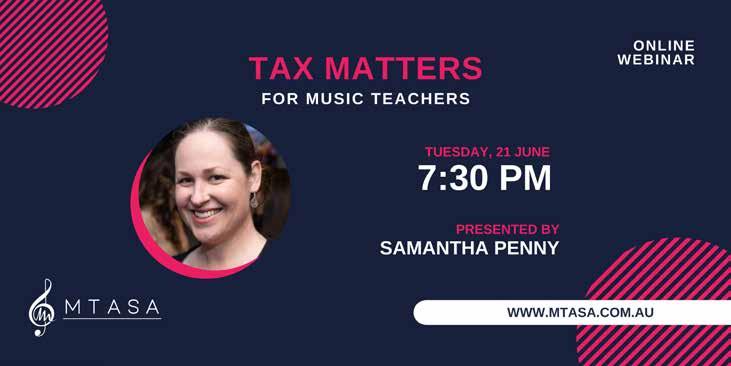
Of particular importance is the claiming of deductions in earning income.
Certain personal items are not allowable as a tax deduction. i.e., buying lunches and clothing are two examples.
There are 3 specific rules:
1. Timing, you must have spent the amount during the financial year you are reporting.
2. The expense must be directly related to earning income or carrying on a business.
3. You must be able to substantiate the expense.
Salary and wage earners:
Some examples of deductions include business parking and travel, self-education, workshops, upskilling, charity donations and photo copying for study.
Business Deductions, which go in the Business and Professional Items on the tax return. These are still claimable if you are a salary & wage earner, but they go in the same section of your tax return as your other deductions.
Some examples: Car expenses travelling between jobs: less than 5,000 km uses a ‘cents per kilometre’ calculation, Logbook method for over 5,000km. Using this method total kilometres for financial year all maintenance expenses, but only the percentage of actual business use can be claimed. Repairs to,
and purchase of tools and equipment. Membership subscriptions, depreciation of equipment, Telephone, and internet expenses (it is important to ascertain the actual percentage of business use, private use is not eligible.) Event expenses, i.e., student concerts. Home office occupancy. Administrative costs and business insurance including personal liability. Bad debts and legal costs trying to retrieve bad debts. Substantiation of business expenses. This means proving that you spent money on these expenses to the ATO, and the records you keep to show them. Receipts.
For sundry items, a shop receipt or diary entry with details of purchase.
Recurring items, a bank statement for under $500.
Online payments: card statement or PayPal statement.
For offline payments or cash payments, an invoice marked paid or receipt.
The ATO requires that you must keep records for 7 years.
Depreciation, of an asset spread over its useful life. The ATO usually decides the useful life of an asset as about 3 years. However, in October 2020 and continuing through to 30th June 2023 has allowed eligible assets temporary full expensing, (maybe a good time to buy that new instrument you have been considering?)
GST Threshold $75K.
Registration is only for teachers carrying on a business.
You must register for GST within 7 days of reaching the $75K threshold.
Also, you can de-register if your income falls below that threshold.
It is not necessary to register for GST if your gross income is less than $75K.
ABN.
An ABN is an eleven-figure number which identifies your business to the Government and community. An ABN can be used for more than one business, as it is attached to the individual, unless you choose a different business structure such as a partnership or company. It is also useful to register a domain name.
Superannuation.
Superannuation contributions can happen ‘before tax’ and ‘after tax’, referring to their place in your calculations. In certain circumstances, it is possible to claim a deduction for ‘after tax’ super contributions, but you must notify both your super fund and the ATO of your intent to do so.
That is a summary of some of the interesting points covered by Samantha in her informative webinar. This webinar is available on the MTASA website. If you have not subscribed to it yet I would highly recommend you do so.
The second of MTASA’s bi-annual Performance Days took place at Flinders Street Baptist Church in the afternoon of August 7th. Twenty young performers of all ages and stages took advantage of the opportunity to perform their pieces in a noncompetitive environment for family, friends and teachers in this beautiful venue. Once again, instruments other than piano were underrepresented. There are many reasons for this, but primarily most works for instruments other than piano and voice require accompaniment. Prior rehearsal or rehearsals are essential, coordinating with the timetables of the accompanist is often tricky and then there are the necessary expenses involved.

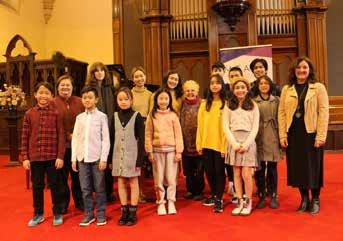
(Having adjudicated at String Sessions at the latest Eisteddfods, it was very evident to me who had rehearsed with their pianist and who had not, and how much these sensitive, experienced accompanists enhance our performances). However, there are many works specifically for solo for almost every instrument, including some fine studies and etudes that we non-pianists might also perform at such occasions as this.
Pat Wilson and Elisabeth McGowran reviewed the first session. Pat gave an hilarious demonstration of how to and how NOT to walk on stage, giving us tips as to how to bow and acknowledge the
audience and thank them for being there and listening. She pointed out that such occasions as these provide a good opportunity to work out how we cope with excitement, nervousness, what to do if our memory fails us etc..
Elizabeth congratulated the first performers especially. She suggested using the charming but effective 2 little words - “Hallo feet!” when bowing. She encouraged players to breathe before starting, and pointed out that a performance involves much preparation-what do I wear, what do I eat, when should we leave, arrive, have I (my parents) left time to find a carpark….. This is truly a great opportunity to prepare for a concert or an exam.
The second session was reviewed by Leonie Hempton and Wendy Heiligenberg. Leonie was delighted to hear the young players and thanked the performers for the gift of their interpretations of beautiful music, leading us through a wealth of emotions- joy, sadness, love, excitement, tranquillity etc. She spoke about projecting to the audience.
Performing is a challenge whether you are 6,16 or 60. It demands concentration and focus and practice, not just alone at home, but at such events as these. Learning that even if you do not feel well, the “show must go on”, and to keep going if you make a minor mistake.
Alexandra Frost is Director and Clinical and Performance Psychologist at Attuned Psychology, an established private Psychology practice in North Adelaide. She brings a unique perspective to the field of optimal performance, mental health and wellbeing for performers. She has worked with musicians at all levels both individually and in workshops for almost 25 years drawing on her experience as a performer, her research and extensive clinical experience.
Alex Frost was scheduled to give three sessions during MTASA’s Summer Conference 20 – 21 January 2022 but unfortunately had to cancel. The conference theme was “Musical Performance: helping pupils unravel its challenges”. Teachers are becoming increasingly aware of the need for pupils to acquire resilient mental health if they are to progress well and her three sessions were to be pivotal in completing the conference discussions about musical performance.
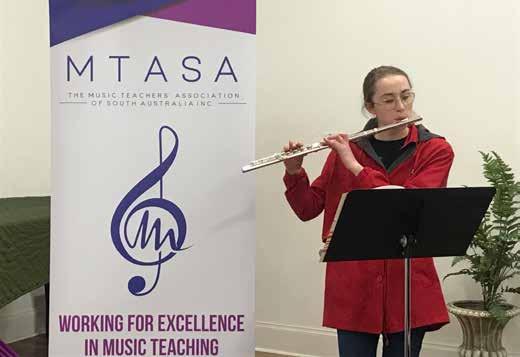
MTASA was delighted therefore that she was able to give these sessions as three webinars on 5, 12 and 19 September. Alex Frost interpreted the conference theme with two topics of her own “To what extent is performance viewed by music students as a threat or a challenge?” and “How to support optimal performance, mental health and well-being in music students”.
Alex Frost’s first session on 5th September was given solo from her office and subsequent conversations with colleagues indicated to me that her exploration of Acceptance and Commitment Therapy was one of the most illuminating they had heard. Essentially, she told viewers, it can be counter productive for musical performers to fight to control nervousness. Such a pathway can lead to mental stress and further anxiety. Acceptance and positive commitment actually harness the heightened awareness pupils experience during exams and performances, achieving better outcomes. She also explored the need for a safe lesson environment and minimising external distractions during performing. Pupil goals and values need to match she advised.
Alex Frost’s subsequent two session were devoted to working with pupils in a performance situation.
The performances in question were as follows:
12th September 7:30 pm
I say a little prayer Bacharach the first movement of the Mozart Bb Sonata KV 454
PERFORMER Keira Gawler Luca Chen with Lillian Camphausen Piano Violin TEACHER Celine Beaton Smith Wendy Heiligenberg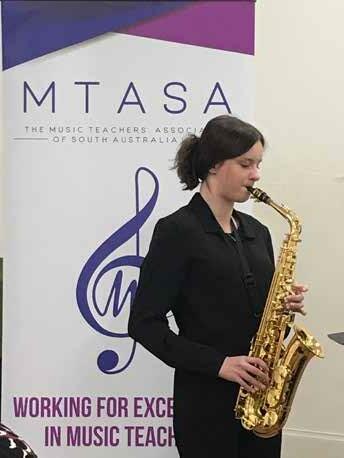
It was illuminating to see Alex Frost putting theory into practice. All performers played their repertoire twice, once to commence with and once again after Alex Frost had worked with them. It was impressively demonstrated that their performances were markedly better after she had worked with them. This had nothing to do with matters of interpretation or style. Alex Frost did not explore those issues. The improvement simply involved stage presentation and performance projection. Frost’s calm and decisive manner in getting the players to consider how they felt and what distracted them – and why – was highly instructive. Afterwards, viewers would have been left wondering how they can integrate such an approach into their lessons in the best interests of their pupils and indeed also in their own best interests.

The
Association provides the Music Teachers’ Association of SA Inc./Grace Barbara Turner Awards for Excellence in Performance every year at the Adelaide Eisteddfod.
The recipients for 2022 are listed below.
Piano: Eugene Wei

Strings: Philippa McAuliffe
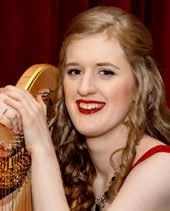
Wind: James Skelton
Vocal: Macintyre Howie Reeves
Eugene Wei (b. 2002) is a well-known musician and pianist in Adelaide. After a 12 month break from the keyboard commencing in April 2021, he reentered the Adelaide music scene as a performer earlier this year. Eugene’s past awards as a pianist includes winning virtually every single first prize in all piano competitions held in Adelaide during his high school times. He was also the first prize in the Recitals Australia Autumn series final in 2019, and the first prize in the national MBS young virtuoso award in 2019. Eugene’s past teachers include David Metin, Gil Sullivan, Monika Laczofy and Konstantin Shamray. Eugene continues to perform throughout Adelaide as a recitalist and concerto soloist, whilst operating as a piano teacher on a part time basis in a school and in his private studio in Fairview Park. As of 2022, Eugene is a third-year, full time student in the University of Adelaide, with a major in Aerospace & Aeronautical Engineering, to which he currently holds a perfect academic GPA of 7.00. During his past-time, Eugene enjoys being outdoors and loves to hike and camp with other friends when it is not hayfever season. He also adores Italian cuisine despite only being able to cook to an elementary level.
Philippa recently graduated from the Elder Conservatorium with first class honours. She holds many scholarships and awards, has been the principal harpist of the Australian Youth Orchestra and plays casually for the Adelaide Symphony Orchestra. She has recently performed Mozart’s Flute and Harp Concerto with the Norwood Orchestra, the Glière Concerto with the Conservatorium Orchestra, been a finalist in the Chamber Music Adelaide Awards, streamed live many times for Recitals Australia and was honoured to be nominated for the prestigious 2021 National Freedman Fellowship. A recent Helpmann grant provided her with international online masterclasses to prepare for the 2021 triennial Israel International Harp Competition but unfortunately travel proved impossible. She quickly turned her attention to orchestral studies, reaching the final round in the Sydney Symphony principal auditions this year. She was delighted to be given her first professional chamber music experience playing The Debussy Trio Sonate in the Coriole Chamber Festival recently with flautist Julia Grenfell and violist Chris Moore. Further Helpmann support is currently enabling her to further her interest in historical harp performance practice with Hannah Lane in Melbourne who has recently returned from Italy and has a replica Baroque triple harp and a restored Erard single-action instrument.
Philippa McAuliffe Eugene Wei BiogJames is 15 years old and studies the piano with Monika Laczofy OAM and the clarinet with his father, ASO Clarinettist, Darren Skelton. In 2019, James performed with an International Youth Orchestra in London’s Royal Festival Hall; he has been a member of the Adelaide Youth Orchestra and recently took part as the Principal Clarinet player in the 2022 Australian Youth Orchestra “Young Symphonists” held in Ballarat.
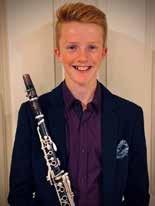
James has had considerable success as a solo musician, with highlights including a performance in the Adelaide Town Hall as featured guest soloist with the Adelaide Youth Strings when he was only 12. This year he has presented two separate concerto performances as clarinet soloist with the Metropolitan Male Choir Orchestra. James won the 2022 Metropolitan Male Choir Music Scholarship and recently was awarded the Lobethal Harmony Club Instrumental Music Scholarship for 2023. James won the Gabor Reeves Woodwind Medallion for his outstanding clarinet performances in both the 2021 and 2022 Adelaide Eisteddfods. In 2022 James won first the prize in the “Grade 7 & Above Woodwind Solo” section, first prize in the “Any Wind or Brass Solo” and first prize in the “Any Instrument Concerto Competition” in this year’s Adelaide Eisteddfods. He was also presented with the Unley Symphony Orchestra Medallion and the Music Teachers of SA “Grace Barbara Turner Award” for Excellence in Performance at the Eisteddfod Prize Winner’s Concert. James was honoured to be selected along with talented young pianist, Samantha Li, to present a duo recital program together for Recitals Australia on October 12th this year.

James achieved his AMEB Certificate of Performance (Piano) earlier in 2022 and is currently working towards his A.Mus.A examinations on both the Piano and the Clarinet. James attends Trinity College in Gawler on a General Excellence Scholarship and he is the 2022 Trinity College North School Captain. James hopes to have a career as a professional musician in the future.
Macintyre Howie Reeves is a performer and director who has performed in multiple Adelaide Festival productions, including Brett Dean’s Hamlet, Danny Elfman’s Music from the Films of Tim Burton, Mozart’s Requiem and Rimsky-Korsakov’s The Golden Cockerel. He has won multiple Lady Ann Miller awards for highest aggregate score at the Adelaide Eisteddfods and been a soloist in Mozart’s Requiem, Bach’s Matthäus-Passion, Handel’s Messiah and guest soloist for Adelaide Carols by Candlelight 70th anniversary. Stage credits include: Lieutenant Barri in Passion, The Major General in The Pirates of Penzance, The Father in Hansel and Gretel, The Page in Menotti’s Amahl and the Night Visitors, Mr. Lindquist in A Little Night, Pish-Tush in The Mikado, Publio in Mozart’s La clemenza di Tito and Betto in Gianni Schicchi for Co-Opera. Chorus credits include: Carmen, La Bohème, La Traviata, Boojum! and Die Meistersinger von Nürnberg for State Opera of South Australia .
Macintyre Howie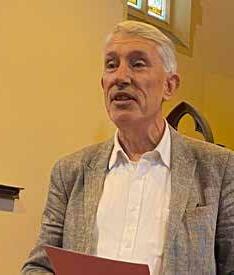
This year we were delighted to have 24 participants in the biennial Norman Sellick Memorial Prize competition for young music students of MTASA members aged under 12. The competition was established in 1972 to commemorate Norman Sellick’s significant contribution to music education and to our association. Competitors are required to play for up to 10 minutes, performing two contrasting works.
Stephen Whittington kindly adjudicated the session. Stephen is an Adelaide-born composer, pianist, writer and music critic and therefore brings with him a wealth of knowledge and experience.
At this competition, every performer receives individual comments from the adjudicator, which aim to encourage and provide the participants with valuable feedback to enhance their next performances.
Stephen said that he was particularly looking for projection, commitment and phrasing when choosing his prize winners. Two prizes and two honourable mentions were awarded.
Anson Tan, violin, was awarded first prize, Sarah Mah, piano, received second prize, and Mia Huang and Ruling Cao, both pianists, received honourable mentions.
As a member of the audience, I really enjoyed listening to the 3 hours of performances. One suggestion I would like to make is that many of the performers finished their pieces, then abruptly stood up, scrabbled for their music and exited the stage with just a hint of a bow. Perhaps we teachers can encourage the students to finish the piece and just hold the tension for a little longer after the last note, to allow the audience to take a breath and “come back to earth”. Then, stand up and face the audience, bow (and if I may once again use Elisabeth McGowran’s charming catchphrase think “Hallo feet!”) in order to acknowledge the audience’s applause and show recognition of its participation in the performance.
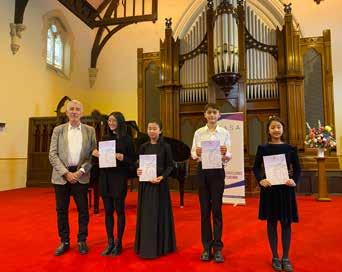
This year’s competition was unusual in that the winners of both first and second prizes were violinists. Without wishing to denigrate pianists one might comment that makes a refreshing change from years of piano playing winners.
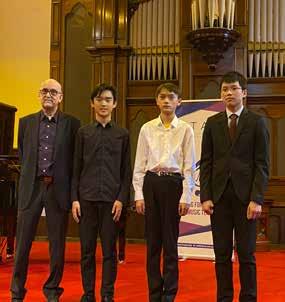
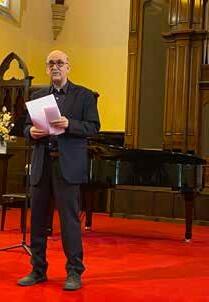
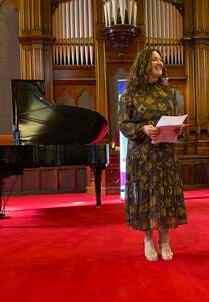
Luca Shin was awarded first place with performances of Mozart’s Sonata K 454 First Movement and Sarasate’s Malaguena. Anson Tang gained second place with Svendsen’s Romance and Gade’s Jealousy. Adjudicator and MTASA Patron Dr David Lockett congratulated both players and in very helpful closing remarks indicated the means by which he reached his decisions, based on elements beyond simply musical accuracy and his own “gut feeling”.
MTASA is grateful to Sponsors Size Music and is thankful to Dr Lockett for providing a third “merit” award, given to pianist Bruce Jian.

For a piano student, the opportunity to perform collaboratively comes by arguably less frequently than for a string or wind player. While the latter two incited my experience in ensembles, accompanying on the piano has allowed me to integrate my learning across all three instruments and collaborate with musicians of various expertise.
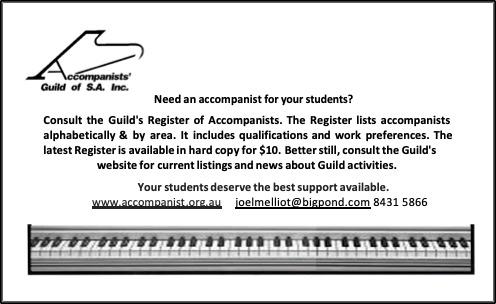
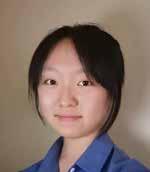
Sight-reading has always been an exciting opportunity to explore new music. Ensemble pieces intrigue me further because aside from the notation on my own pages, there are various “unknown” parts and patterns to listen out for and respond to. Developing awareness and consideration for other parts became an even more prominent focus as I ventured into chamber ensembles such as those in the Junior Ensemble Musicians (JEMs), where our understanding of each other’s playing, including sound quality and leading, was pivotal for a unified performance.
My first performance as accompanist featured a close friend whom I had met and grown familiar with through the orchestra as violinists. Our past experiences of performing together and collective understanding of the piece made our rehearsals a subtle bridge between a piano-violin duet and an accompaniment for a soloist. In my earlier ensemble years, to play the melody line appeared to be the most honourable assignment, and often, it was given the most credit. Growing my experience in orchestras, chamber ensembles and as accompanist has developed my appreciation for the role of providing the harmonic foundation, which is
vital for enhancing and communicating music to the audience, creating “colour” that cannot be portrayed by a singular melody. Though I have learned much about accompanying since my initial experience and still have much more to learn, I am truly grateful to have realised the collaboration and engagement required from accompanists, which is no less important than that of players in a duet.
When playing as an associate artist i.e. an equal partner in the music, I am constantly learning to balance with and complement the soloist. Throughout this process, I learn more about the characteristics of other instruments as well as their range of repertoire, and build experience in collaborating closely with instrumentalists at various stages of their music studies. For example, in the Young Accompanists’ Showcase (YAS) and Collaborative Pianist Awards (CPA), I was fortunate to refine my accompanying with help and advice from a professional soloist, presenting me with endless opportunities to challenge and extend myself. At school, collaborative playing has allowed me to work with individual students, vocal trios, orchestras and choirs, offering a glimpse into ensembles that I would otherwise not have met. Within my family, I have been very fortunate in accompanying my younger siblings in their first violin solo performances.
Through accompanying, I have experienced a rewarding connection with a range of musicians and ensembles, and hope that other piano students might find similar opportunities to approach this role and its many possibilities!
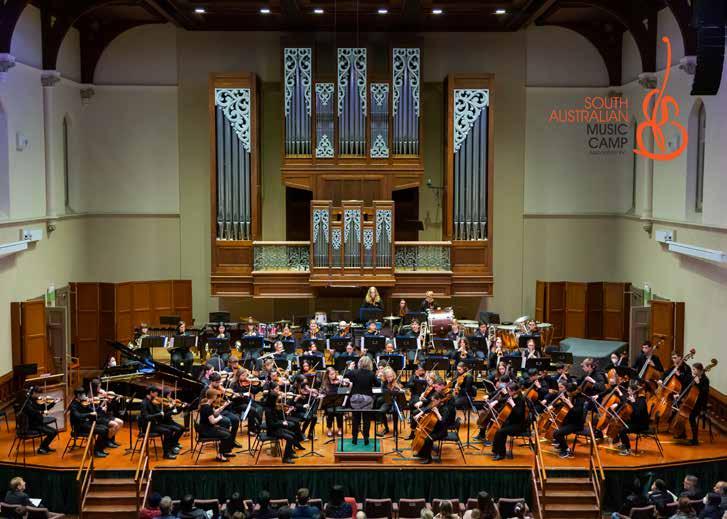 By Wendy Heiligenberg
Anthony Radogna
By Wendy Heiligenberg
Anthony Radogna
This year was especially significant for our SA State Music Camp as we celebrated our 60th Birthday. The University of Adelaide kindly hosted Camp for the third time. We were so lucky to have the use of the wonderful facilities on the beautiful campus, and it was fitting to be celebrating our birthday in the Elder Conservatorium, where the co-founder of Music Camps in Australia, Professor John Bishop was Professor of Music. Together with Ruth Alexander, Professor Bishop founded Adelaide’s May Music Camp in 1962 and apart from 2 missing years, one due to the involvement of staff in the Adelaide Festival of Arts (another of Professor Bishop’s visionary creations) and the other due to the pandemic, SA Music Camp has taken place annually since then. Over the years, many amazingly dedicated people, all wonderful musicians and music teachers, have worked very hard to help SA Music Camp go from strength to
strength. From its modest beginnings with around 60 Campers, and 2 ensembles, we now boast a strength of over 250 Campers in 5 different ensembles.
In 1964, Prof. Bishop sadly passed away suddenly at the age of 61 and he would be proud and thrilled to know that his legacy has continued and gained momentum for almost as many years as those spanning his own lifetime.
During Music Camp 2022, former Campers and staff were given the opportunity to visit, and many who were unable to come in person sent emails and photos and shared their experiences from the past. Our Historian, Jenny Watkins has done a tremendous amount of research and has shared her knowledge via Facebook throughout the year and is currently still posting a host of interesting articles, including correspondence and historical
Credit:facts and photographs in a Countdown to this 60th year of Music Camp.
It takes a village to raise a child and if we regard Music Camp as a child, our 2022 village had a population of over 2,000, this includes the Campers, their parents, relatives, and friends, many of whom are also on the musical side of this village, together with the instrumental teachers, the auditioners, the tutors, the conductors, our amazing Committee, and the dedicated administrative staff.
Learning an instrument is inspiring and challenging and unlike many recent innovations, it does not provide instant gratification. The rewards come after many, many hours of dedicated practise. There were many times when I would have preferred washing the dishes with the family rather than practising my violin on my own. But the rewards are many, particularly when we have the joy of performing up on the Elder Hall stage
with many like-minded musicians. There are many studies which try to prove that playing a musical instrument makes you smarter, more sociable, better at Maths and you learn about History, Art, Politics, Communication. Music helps memory, especially in later life and stimulates almost every part of the human brain. The list is endless, but what all these studies forget is that learning a musical instrument and especially playing in an ensemble is fun, it brings us all together and rewards us all with great joy.
We are very grateful to all of you music teachers out there, who make students and parents aware of Music Camp and its joys and benefits. It is you who guide and encourage students on a regular basis throughout the year and prepare them for the amazingly beneficial possibilities of ensemble playing. Without you all, Music Camp would not take place.

 By Anthony Lillywhite
By Anthony Lillywhite
Ex. 1 shows the overtone series from ‘C2’ (the C that is two 8ves below middle C) as shown in my previous article about the overtone series. The numbers shown are the ‘Partial Numbers’ by which the overtones are identified. In this article we will be focusing on the 7th partial.
Ex. 1
Ex. 2 shows the 4th, 5th and 6th partials forming a close root position C major triad, and the 4th, 5th, 6th and 7th partials forming a close root position C7. It is notable that the 7th partial is a minor 7th above the 4th partial, and that the 4th partial is a two 8ve transposition of the 1st partial - the fundamental, and acoustic root of each interval in the overtone series.
Ex. 2
So now the question arises; how do we find a Cmaj7 chord from this overtone series?

A major 7th chord has a major 3rd, perfect 5th and major 7th intervals above the root. A close look at Ex.1 will reveal that there is no major 7th chord constituted as described above to be found in the overtone series to the 13th partial.

In his book - ‘Modern harmonic Technique’ Gordon Delamont sets out the following principle: “The fourth note added to a basic triad will be the interval of a minor 7th (7th partial) from the root, provided this note is available in the scale being used. When the minor 7th above the root is not available in the scale being used, use what is termed a 7th harmonic substitute.”
The 7th harmonic substitute is the note a semitone above or below the unavailable minor 7th, and in each case is referred to as an altered 7th partial. Altered partials are indicated by a √, regardless of whether the partial has been raised or lowered. See Ex. 3
The second chord in Ex. 3, C6, is a C major triad with a note a major 6th added above the root note. This is an abbreviation of the formerly used chord symbol - ‘C(add6)’. This notation is identical to a 1st inversion of Am7. As to whether such a chord is analysed as C6 or Am7 depends on context.
Major triads that may be extended to major 7th or major 6th chords are built on the tonic and subdominant (I & IV) in major keys and on the submediant (VI) in minor keys when the scale being used is the harmonic minor. (When considering chords built on the degrees of the natural minor, we may add the mediant (III).
In Ex. 4 and Ex. 5, I have, for simplicity, used Roman numerals in capitals to indicate the degree of the scale on which each chord is built. The quality and extensions are evident from the chord symbols.


The term ‘6th chord’ may have a different meaning for classical musicians as opposed to jazz musicians. A 1st inversion triad may be referred to as a ‘6th chord’; 6 being an abbreviation of 6/3. To a Jazz Musician, a 6th chord is a major triad with a 6th added above the root - the 6th being a 7th harmonic substitute for the unavailable minor 7th.
This helps us understand chord symbols in the following way. A major triad is always symbolised as a capital letter that is the name of the root note. As stated above, when a 4th note is added to a triad, it will be a minor 7th if available in the scale being used.
Therefore, the chord symbol C7 has two discreet bits of information: ‘C’ means - a C major triad, and ‘7’ indicates that a minor 7th - Bb is added to the triad.
When a major 7th is added to a major triad, the chord symbol ‘Cmaj7’ is understood as follows: ‘C’ = C major triad, and maj7 = add ‘B’ to the triad; i.e. the ‘maj’ relates to the 7th, not the triad. ‘C6’ means add a major 6th to the triad. A 6th added to any chord will be a major 6th from the root unless shown otherwise, in which case it will more likely appear as ‘B13’ or enharmonically as +5 (♯5).
Finally, it is necessary to understand that in practice in jazz performance, major 7th and major 6th chords are used interchangeably, and the above theory (both the major 7th and major 6th are altered 7th partials) helps us understand how and why.
There is much more to say about these two variants of the same chord, and that, along with a look at the altered 5th and 9th partials will need to wait for another article.
P.D. Could stand for Project Director? Public Domain? Postural Drainage? Phase Detector? P. Diddy? For us music teachers, of course, it’s Professional Development, the source of those extra vitamins and minerals we need to supplement our daily pedagogical diet.
Over the last Labour Day weekend, my tribe (the Australian National Association of Teachers of Singing – ANATS) held their four-day biennial national conference in Adelaide. Conducted as a hybrid conference, and attended by 230 delegates (40% in-person and 60% online), it’s the biggest singing teacher talkfest in the country. And many South Australian singing teacher wanting to bump up their professional development, network with international and national experts, or just simply talk shop with other people who face challenges just like theirs, benefitted greatly from the professional cross-pollination.
The conference title was “Encompassing the Vocal Spectrum”. Like most conference titles, it’s more sales pitch than information. In practice, the emphasis was on Equity, Diversity, Inclusion and Belonging. These four pillars of pedagogical wisdom were repeatedly examined in relation to how we teach, who we teach and what we teach. For singing teachers working with music theatre repertoire, the questions are wide-ranging:
• ‘I want to sing “Almost there” by Randy Newman (from the animated Disney film The Princess and the Frog). Am I brown enough?’ [This from a student of Sri Lankan national heritage.]
• ‘Do I have to be gay or bi to be allowed to sing “What more can I say?” from William Finn’s Falsettos?’
• ‘So why can’t I sing “Memory” from Lloyd Webber’s Cats?’ {This from a 10-year-old.]
• ‘Should we cast a differently-abled actor in Stephen Schwartz’s Wicked? It’s hard to find wheelchair-bound actor-singers.’
• ‘If we can’t find a suitable Thai man to play King Mongkut in Richard Rodgers’ The King and I, will Leichner Gold tinted foundation and lots of eyeliner be OK?’
• ‘South Pacific is a great show… and it always sells well. But how can we possibly ask today’s performers to put up with all that 1949 sexism, misogyny, objectification and racism?’
These – and many more – curly questions were examined by both Australian and international experts in our trade. There were gems to be found in both scholarly presentations and informal coffeetime yarns with colleagues. It took a Canadian presenter, Dr Shannon Coates, to tell me that in te reo Māori, the word for autism is ‘Takiwātanga’… literally ‘in their (my/his/her) own time and space’. She said that respecting and honouring that unique space and time inhabited by an ASD student makes for a far richer learning and teaching experience.
It’s little things like that which colour not only our teaching but also our world and life viewpoint.
This quarter’s handout is ‘Useful resource material for actors who sing and for singers who act.’ It’s a list of books (remember books?) I compiled a little while ago. Even the most dedicated YouTuber hasn’t got a hope of gathering the range of authoritative information that these immensely wise and practical books offer. If you’d like a copy of the list, drop me a line (pattbat@gmail.com).
I’ll have some answers from Adelaide’s Princes and Princesses of the Pit. Just for fun, I’ve been asking a number of local Musical Directors what training, skills and attitudes they are looking for when they hire musicians to play in their music theatre shows.
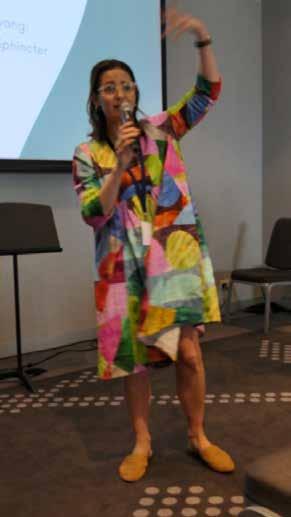
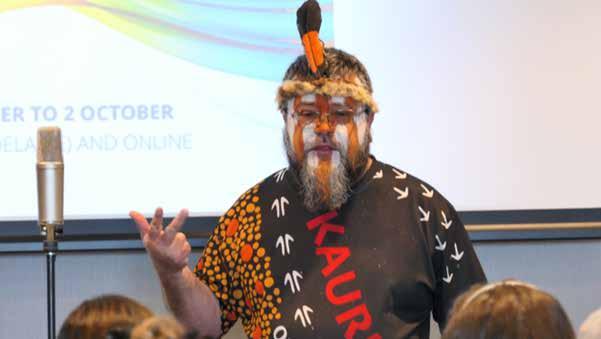
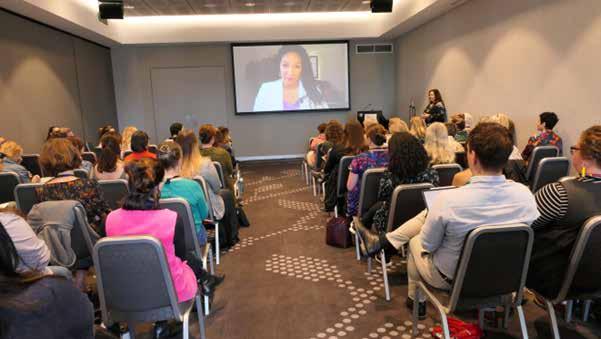
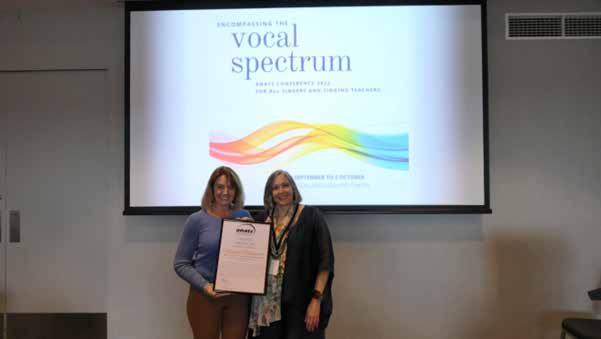 Local jazz magician Lauren Henderson in action, giving a masterclass in Jazz Styles
Shelli Hulcombe, National Vice-President of ANATS, awarded a citation from National President Linda Barcan
Photo credit: All photos courtesy of Kim Spargo
Real-time live keynote presentation (Cultural Appropriation, Appreciation and Adaptation) by USA expert Dr Trineice Robinson-Martin
Local jazz magician Lauren Henderson in action, giving a masterclass in Jazz Styles
Shelli Hulcombe, National Vice-President of ANATS, awarded a citation from National President Linda Barcan
Photo credit: All photos courtesy of Kim Spargo
Real-time live keynote presentation (Cultural Appropriation, Appreciation and Adaptation) by USA expert Dr Trineice Robinson-Martin
I was fortunate to meet Kirsty McCallum during an examining tour in Darwin earlier this year. She is a most experienced violinist, string teacher, ensemble director and artistic organiser now settled in that area, having previously lived and worked in Sydney, Canberra and Adelaide. She examines for the AMEB as well. In typically selfeffacing manner she has written about her colleague Cathy Applegate rather than herself, but I think some feeling for the extensive musical activity they both pursue is evident from her article.
Rodney Smith.
By Kirsty McCallumCathy Applegate is one of those most unassuming musical treasures who has lived in Darwin since 1982. Married, and a mother of 3 adult children, medical doctor by profession, prolific composer, musician and gifted arranger by design.
Cathy draws inspiration for many of her compositions from nature, in particular her compositions reflect the Northern Territory landscape, the people, the wildlife, the history and natural beauty. Cathy has a certain distinctive style in blending beautiful harmonies that are refined and understated yet paint a total musical picture without needing any extra decoration to fulfil its potential, much like a beautiful sunset over the Arafura Sea, perfectly formed with beautiful tonal shadings blended effortlessly.
Over the years, Cathy has been commissioned as a composer to create many works for individuals, and for groups in Darwin such as the Darwin Symphony Orchestra, Darwin Chorale, the Arafura Wind Ensemble, and the Arafura Collective. She has collaborated extensively with local and interstate artists, her works performed both nationally and internationally. In recent years, many of Cathy’s works have been recorded.
As a performer, Cathy plays cello in the Darwin Symphony Orchestra. She is also a pianist and has played in many of Darwin’s ensembles as well as working as an accompanist with students for decades.

In 2016, Cathy was a co-convenor for a concert featuring The Australian Doctor’s Orchestra in their inaugural Darwin performance.
She has also been one of the principal organisers for The Legato Orchestral Experience, an annual event since 2016, held at CDU and hosting around 50 young Territorian musicians. This program was designed for students from AMEB grade 1 upwards.
Only this month, within 3 days of rehearsal, the Legato Orchestra students had mastered
the orchestral arrangements that Cathy had so brilliantly penned, with some of the famous tunes we all know and love, and the students loved them too.
Cathy has that uncanny gift to include such tasteful arrangements that sound way past the instrumental level of the students who are involved. Designed and arranged by Cathy, each section of the orchestra has a professional teacher to tutor the students and each student’s potential is challenged. However, Cathy’s arrangements have been so carefully crafted to showcase the technical finesse of even the most elementary student with her multilevel approach to composing, that by the end of the 3 days each student was able to perform his or her part with pride. Such great arrangements as Sibelius’ Finlandia, the ‘Anvil chorus’ from ‘Il Trovatore’, ‘Summertime’ from Porgy and Bess, and a ‘Chinese Folk Fantasy’, by James Curnow were performed this month after 3 days of intensive rehearsals. The concert was a great success, and the parents and general audience loved it. Without Cathy’s wonderful talent for arranging none of this would have happened.
Cathy has tutored cello sections and taken workshops on composition. More recently she has taken on the main co-ordinator role as well as arranging classic orchestral repertoire for this youth orchestra. In 2022, Cathy hosted a Composers Workshop with the DSO as part of the Darwin Festival. This featured new works by three local emerging composers. She has been a judge on the national panel for APRA AMCOS on two occasions in recent years.
In 2020, Cathy was commissioned by the ABC to contribute a piano trio work (Cycads after Fire) to the project Fire Dances which was released on CD and on Spotify in November 2021. Major works include an award-winning Orchestral Suite – The Wetlands Suite, two musicals performed at Charles Darwin University, a full-length ballet: The Brolga and the Star and a piano concerto, Concertantrum, for Australian piano virtuoso, Michael Kieran Harvey. In 2022, she was commissioned to compose a work for the Arafura Wind Ensemble and the City of Darwin; this work, Darwin 1942, commemorates the 80th anniversary of the Bombing of Darwin. She has Associate Representation with the Australian Music Centre who publish her works.
Cathy’s style is versatile and eclectic, exploring many genres. Further details of her works can be found on her website, cathy-applegate.com and on the Australian Music Centre.
Greetings from Darwin Cathy Applegate musician, composer, arranger, cellist, pianist, conductor, teacher, author, medical doctor, and proud Territorian.Plans are afoot for MTASA’s Professional Learning Day on January 25th 2023 to focus on the theme Reading music: cherished skill or formidable barrier for students.
All of us at some time or another will surely have wished Guido D’Arezzo had invented something a little bit – well – more user friendly. By today’s “is it intuitive?” standards music notation does an outstanding job as an anachronism. Yes, indeed those tubby minims and easy to identify crotchets are quite loveable and make for ideal infographics. But it’s really the five lines and four spaces that cause the initial trouble spatially and directionally, and of course the minim and crotchet symbols come back to haunt pupils when they are put into time signatures and need rhythmic patterning added.
You can well sympathise with those more selfconfident jazz students in my pedagogy tutorials who would assertively proclaim “I never bothered to learn to read music when I was a kid, so I don’t bother to teach it either. Why don’t you teach improvising? It’s much more useful!”.
The pedagogical ground is littered with such arguments and so MTASA thought a series of presentations from teachers with an interest in the subject would hopefully be welcome, interesting and above all useful. The following vignette sums up much of what we considered needed airing: “Is music my friend? Music is, but written music isn’t!”
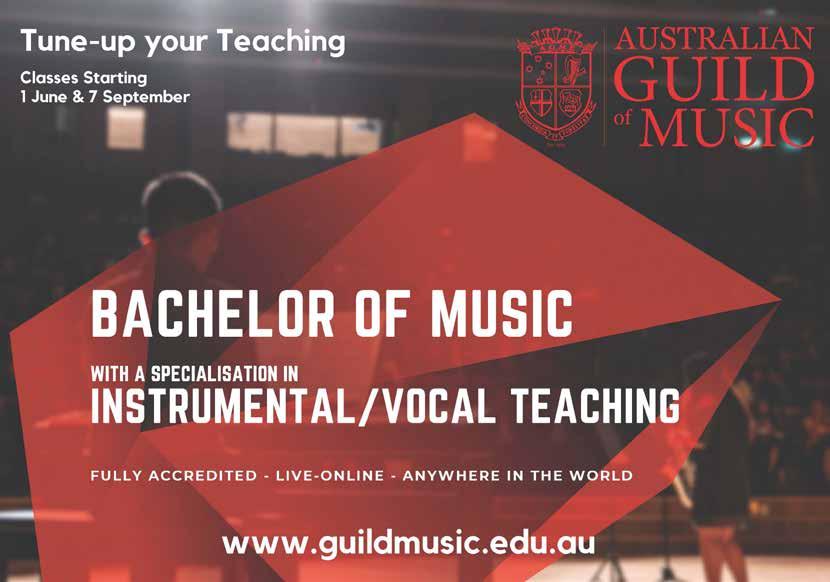
“It’s all been great to start with and learning to play is fun. But those dots on the page don’t help, so I’m just learning everything by heart. Easy!”
Later: “Well, the pieces are a bit longer now and my teacher says I’m not playing the right notes and told me I should read the notes more carefully. Oh dear! I hate reading music!”
Of course, pianists draw the short straw here as they have two staves and an enormous compass of notes to cover. But we will make sure a fairly broad spectrum of instruments is represented and hopefully participants will come away with at least pertinent questions to consider if not all the answers they wanted.
Have you ever given your students technical advice that you once received, found it ineffective, and thought: ‘Well, that’s not entirely surprising because it actually never really worked for me’? It was in this situation, trying to solve problems with an advanced student’s octaves, that I stumbled across a documentary about the late Dorothy Taubman. The documentary, Choreography of the Hands, showed Taubman’s exceptional pedagogy and her ground-breaking work in analysing the underlying movements of a virtuoso piano technique. I quickly discovered the Golandsky Institute in the US, which is the centre for teaching the Taubman Approach, and Brisbane-based Dr Therese Milanovic, Australia’s most highly qualified Taubman teacher. My first lesson took place at the end of that year.
It’s exasperating to look back now, because although I found the lesson and online resources helpful and interesting, I felt my technical limitations were essentially intractable, and decided to explore Taubman further when I had more time. I continued playing, teaching and vocal coaching, had a baby, and somehow finished a PhD. It wasn’t until 2020 that I began studying the Taubman Approach seriously. A Creative Endeavour Grant from Arts SA allowed me a period of Skype lessons with Therese, and this was followed by a Professional Development Grant which concludes at the end of 2022. This study has changed me both as a teacher and pianist, and given me knowledge that I am excited to share.
There are of course virtuosic pianists to whom piano technique comes naturally and I think this can lead us to consider our own technical limitations as inherent and unchangeable. This might also be the attitude of some of our teachers. Certainly, some students seem to play with a natural ease and facility, while others may be full of tension and seemingly limited. I’m sure we’ve all encountered very musical students significantly inhibited by their physical instincts. Throughout all my university studies here and in Europe, it’d be fair to say I’ve been one.
The Taubman Approach explicitly teaches movements that a naturally virtuosic pianist employs instinctively. Many of these are invisible, underlying the movements we see. The process has required patience and discipline, but my playing has been transformed through learning and
employing the principles that Dorothy Taubman discovered and that the Golandsky Institute faculty continues to develop. I now understand the principles of correct alignment, of a unified playing apparatus, rotation, avoiding stretching or twisting, efficiency of movement, and much more. It’s a continuing journey, but many of my previous technical limitations have gone, my practice has increased in efficiency, and I’m getting closer to being the musician I want to be.
In my teaching I find I am able to solve technical issues for students playing very advanced repertoire while at the same time I can establish genuinely healthy technique in my beginning students. The tense hand of the (seemingly) limited student is one that, with the student’s co-operation, I can help to change. I particularly love that my amateur adult students now develop an ease that seems unlikely in an older learner. I have one adult student who works as an accompanist and came lacking in confidence and with clear technical and musical challenges. She was so excited by the newfound security and confidence she felt in her recent performance that she brought me flowers! I knew exactly how she felt; this is the Taubman Approach at work.
The Taubman community is international, with many members performing and/or teaching at a very high level, others teaching busy studios of younger students. A unique mentoring structure requires that Golandksy Institute teachers (including faculty members) continue to receive lessons themselves so everyone constantly develops and refines their knowledge while always remembering what it feels like to be a student.
With the Taubman approach, there is no longer the burden of repetitive practice in the hope of improvement; both my students and I know that, rather than repetitively slogging away, we need more information regarding the requisite movements. Through the Taubman Approach, that infomation is readily available. We can be confident that, from each Taubman-based lesson, we will leave equipped with new solutions that work and an understanding of the reason why.
www.penelopecashman.com www.theresemilanovic.com https://www.golandskyinstitute.org
Most of us probably have information about past musicians, I have three separate items relating to music in South Australia.
The Winter 2022 SA Music Teacher Magazine had an article by Wayne Hancock, My Memories as an Accompanist in Adelaide. There was reference to violinist Lyndall Hendrickson, this prompted me to find a long stored away letter, written to me by Lyndall dated 6th June, 1986. I was living in Melbourne at the time but I had known Lyndall since the 1960’s when I was then living in Adelaide.
In 1969, after completing various studies at the Elder Conservatorium, I was mainly teaching privately and at the start of 1969 my pupils included pianists and a number of young violinists. In July that year I decided to move to Albury, NSW, to teach music at a small secondary girls’ school, mainly boarders. What to do with my pupils! I contacted Lyndall about the violin students, she agreed to audition them and took five of them including Jane Peters. (For years I kept in touch with Lyndall re Jane’s progress and when visiting Adelaide would go to hear Jane play. What a gifted young violinist.)
In 1986 I contacted Lyndall to tell her I was now in Melbourne and had qualified to be a teacher of the Alexander Technique. Her detailed reply is full of interest and I quote some of it here. First she said how pleased she was that I was teaching the Alexander method then; “My mother was a very wise woman. When I was preparing for my concert career she sent me to a wrestler (!!!) to learn relaxation! He was quite a famous local identity named Charles Honroth who trained wrestlers and also massaged them after bouts. He put me through a series of gymnastic-type exercise to loosen up my vertebra, shoulders, arms and wrists. He also taught me how to relax & drop off to sleep at will, during waking hours. I learned to time these ‘catnaps’ without a clock. It was marvellous ‘therapy’. During the War (WWII, Rosslyn) I travelled the length & breadth of Australia for 5 years – giving recitals & playing at Service Camps… It was a terribly exhausting & vigorous life, but I was very fit. I don’t think that I would have made such an incredible recovery from polio if I hadn’t been taught how to relax my muscles. …………..
When I am travelling & feel exhausted from tropical heat, poor food, jetlag…& the rest…I get down on the floor (of my hotel) on my back, close my eyes, relax 2 each joint, one by one, & doze for any required length of time. I always feel greatly refreshed after only a few minutes’ sleep.”
Lyndall then gives detail about some of her pupils at that time and talks about her teaching materials and attending various Conferences.
The above is from a personal letter to me. My second item is a CD I have of two talks that cellist James Whitehead gave for the Cello Syllabus of the AMEB. Many years ago the AMEB used to have a regular half
hour time on ABC radio every Saturday morning, it would be a prominent Australian musician talking about the AMEB syllabus for a particular instrument, or voice, with demonstration too of the requirements for a given grade. These talks were helpful for one’s own teaching and of great general interest.
The first of the two talks by James Whitehead covers Cello technique from basics – the importance of tone, practising of scales – to advanced needs. In the second talk there is demonstration of a few pieces from the cello repertoire, Noreen Stokes is playing the accompaniments. Those of us fortunate to be in Adelaide during the time of James Whitehead will remember his wonderful playing. Especially it was a privilege for me to attend a series of concerts arranged by the University of Adelaide with James Whitehead and Lance Dossor (my teacher) playing all the Beethoven cello works.
My final items of memorabilia are two articles by Enid Conley, pianist. I have no idea how I came to have these ! I think it may have happened when some years ago I was an accompanist for singer Jeannie Kelso. Occasionally after a concert an audience member would come forward and offer to Jeannie a collection of music that was not wanted. Jeannie usually accepted then we had an interesting time later on to see what “treasures” were there! I think these articles were amongst old music.
One item is five pages long and Enid Conley tells of her childhood, learning piano in Queensland then moving to Sydney to study with Frank Hutchens at the Conservatorium; this about 1919 onwards. The article is typed and later tells of Enid’s journey by boat to England to study in London. On the outside of one page is written Mr Tidemann, from Brian Gill, for Mrs Williams. (Enid Conley) The second article, three pages, is about much later times. Enid Conley had 3 married baritone Clement Q William; for some time both were on the staff of the Elder Conservatorium under Professor John Bishop.
At present the University of Adelaide is not accepting new material for their archives, for this year, so if any MTASA member could suggest where the texts by Lyndall Hendrickson or Enid Williams (formerly Conley) could be housed would appreciate suggestions. The CD of AMEB broadcasts for the ABC by James Whitehead is at present on offer to the AMEB
I know when I did my research, mainly in Melbourne, for my book about the Australian years of Frederick Matthias Alexander and his development of what is now known as the Alexander Technique, that I was always very pleased to discover original source material. So in the future these items may be of interest to a keen researcher !
rj.mcleod1@bigpond.com
October, 2022.
REMIX Past. Present. Future Adelaide ANCOS Conference 21st Biennial ANCOS National Orff Schulwerk Conference
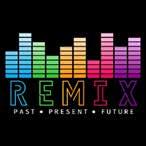
Date
Website
: : :
9-12 January, 2023 Stanford Grand, Glenelg www.facebook.com/adelaideremix2022
SA MUSIC CAMP 2023
www.samusiccamp.com.au/ The 2023 Music Camp dates will be released from November
• SA Music Camp offers instrumentalists from the age of nine to twenty three years an opportunity to play in one of five ensembles which cater for a wide range of ages, standards and levels of experience.
• Daily routine includes a mixture of tutorials with specialist tutors, and rehearsals with leading conductors.
• All ensembles perform in a final concert on the Friday night.

ADELAIDE EISTEDDFOD 2023
Entries for the 2023 Adelaide Eisteddfod will be via Stardom; go to http://www.stardom.com.au/. All of the participating competitions can be viewed from the Homepage. To enter a competition you will need to be registered to login. Visit the Adelaide Eisteddfod website at http://www.sacomment.com/aes/eisteddfod/ to read the General Rules and look for any news.
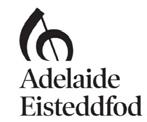
Disciplines included are Instrumental Ensembles, Bands, Choirs, Vocal Ensembles, Vocal, Musical Theatre, Contemporary Vocal, Instrumental, Piano, Speech and Drama and the Finale Concert including adjudication of the ‘Adelaide Plains Male Voice Choir’ Vocal Scholarship. Visit http://www.balaklavaeisteddfod.org.au, the Facebook
AUSTRALASIAN PIANO PEDAGOGY CONFERENCE 2023
Due to a range of adverse issues arising from the Covid crisis, the Australasian Piano Pedagogy Conference – Perth 2023 has been cancelled.
The next APPC will be held at Monash University in Melbourne in early July of 2024 with exact dates to be confirmed.
appca.com.au Website :

SYDNEY INTERNATIONAL PIANO COMPETITION 5-22 July, 2023 https://www.thesydney.com.au/ Dates Website : :
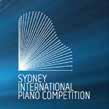
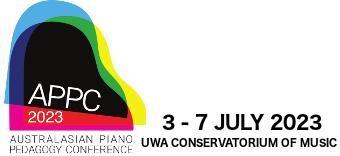
Rehearsals Venue Contact Ph. Email Theme Website
: : : : : : :
The Mitcham Orchestra is looking for lower strings, Oboe and Horns. Saturday afternoons 1.30pm – 4.15pm Cumberland Park Community Centre, 390 Goodwood Rd, Cumberland Park Ros Keynes 8390 3053 rosalind@keynes.id.au 2023 INSTRUMENTAL/VOCAL Music Scholarship-2023 Metropolitan Male Choir of South Australia Inc. www.mmcsa.org/about/music-scholarships/
The Metropolitan Male Choir Y2023 music scholarship program for solo Instrumental/Vocal performance, is offered to young people with proven musical ability. Applicants must be 12 to 16 years of age on January 1, 2023.
5MBS: MUSIC BROADCASTING SOCIETY OF SA www.5mbs.com 8346 2324 5mbs@5mbs.com 4A River Street Hindmarsh SA 5007
AUSTRALIAN BAND AND ORCHESTRA DIRECTORS’ ASSOCIATION (ABODA): ABODA SOUTH AUSTRALIA www.abodasa.com.au info@abodasa.com.au ABODA SA C/-PO Box 327 Walkerville SA 5081
ABRSM EXAMINATIONS www.us.abrsm.org/en/home SA Rep.: Anastasia Chan 8234 5952/0423 282 589 abrsmsa@hotmail.com
ACCOMPANISTS’ GUILD OF SA INC. www.accompanist.org.au President: Leonie Hempton OAM 8272 8291/0404 145 502 leoniehempton@gmail.com
ADELAIDE BAROQUE www.adelaidebaroque.com.au 8266 7896 0400 716 554 General Enquiries manager@adelaidebaroque.com.au 10 Clarence Avenue, Klemzig SA 5087
ADELAIDE CHAMBER SINGERS www.adelaidechambersingers.com/ +61 8 8352 1329 admin@adelaidechambersingers.com
ADELAIDE EISTEDDFOD SOCIETY INC. www.sacoment.com/aes/eisteddfod/ Secretary: Jane Burgess adleisteddfod@adam.com.au jane@janeburgess.com.au
ADELAIDE HARMONY CHOIR www.facebook.com/adelaidephilharmoniachorus/ Secretary: Sherry Proferes adelaideharmonychoir.info@gmail.com
ADELAIDE PHILHARMONIA CHORUS www.philharmonia.net/
ADELAIDE YOUTH ORCHESTRAS www.adyo.com.au/ 8361 8896 Executive Director: Ben Finn claire@adyo.com.au
AMEB EXAMINATIONS: SA AND NT www.sa.ameb.edu.au/ 8313 8088 ameb@adelaide.edu.au
AUSTRALIAN NATIONAL ASSOCIATION OF TEACHERS OF SINGING (ANATS) ANATS: SA AND NT CHAPTER www.anats.org.au/sant-chapter Secretary: Dianne Spence anats.sa.nt@gmail.com 0435 300 070 admin@anats.org.au
ANZCA EXAMINATIONS www.anzca.com.au (03) 9434 7640 admin@anzca.com.au
AUSTRALIAN SOCIETY FOR MUSIC EDUCATION (ASME) ASME: SOUTH AUSTRALIA CHAPTER www.asme.edu.au/sa/ President: Luke Gray graylu@trinity.sa.edu.au asme@asme.edu.au
AUSTRALIAN STRINGS ASSOCIATION (AUSTA) AUSTA: SA CHAPTER www.austa.asn.au/chapters/sa/ President: Fiona Patten fionapattenausta@gmail.com +61 439 885 754
AUSTRALASIAN DOUBLE REED SOCIETY www.adrs.org.au Contact: Josie Hawkes OAM josie.bassoon@gmail.com
AUSTRALIAN STRING QUARTET www.asq.com.au/ 1800 040 444 asq@asq.com.au
BALAKLAVA EISTEDDFOD SOCIETY www.balaklavaeisteddfod.org.au Contact: Trish Goodgame 0417 891 834 info@balaklavaeisteddfod.org.au
CON BRIO EXAMINATIONS www.conbrioexams.com 9561 3582 / 0401 014 565 lily@conbrioexams.com
ELDER CONSERVATORIUM OF MUSIC www.music.adelaide.edu.au/ 8313 5995 music@adelaide.edu.au
ELDER HALL www.music.adelaide.edu.au/concerts/ 8313 5925 concertmanager@adelaide.edu.au
FLUTE SOCIETY OF SA INC. www.flutesocietyofsa.org Secretary: Catherine Anderson secretary@flutesocietyofsa.org
INSTRUMENTAL MUSIC: DEPARTMENT FOR EDUCATION
Instrumental Music Office - Klemzig 8261 8988
IM.KlemzigOffice608@schools.sa.edu.au Instrumental Music Office - Morphett Vale 8392 3800
IM.MorphettValeOffice896@schools.a.edu.au Music Programs 8226 1883 education.musicprograms@sa.gov.au
KODALY MUSIC EDUCATION ASSOCIATION OF SA www.kodalysa.com/ 0405 066 469 kodalysa@gmail.com
MUSICA VIVA www.musicaviva.com.au for concert details Box office: 1800 688 482 contact@musicaviva.com.au boxoffice@musicaviva.com.au
MT GAMBIER EISTEDDFOD www.backstageinc.org.au Secretary: Maxine Chalinor 0457 067 555 tonymaxine@internode.on.net
MUSICIANS’ UNION OF AUSTRALIA ADELAIDE BRANCH www.musiciansunion.com.au/ 8272 5013 industrial.officer@musicians.asn.au Federal Treasurer-Sam Moody 0412933865 musosa@bigpond.net.au
ORFF SCHULWERK ASSOCIATION OF SA www.osasa.net/ info@osasa.net
PRIMARY SCHOOLS MUSIC FESTIVAL www.festivalofmusic.org.au 8261 5438 office.psmf799@schools.sa.edu.au
RECITALS AUSTRALIA www.recitalsaustralia.org.au 8236 7488 info@recitalsaustralia.org.au
ST CECILIA EXAMINATIONS PTY. LTD. www.st-cecilia.com.au 1800 675 292 info@st-cecilia.com.au
SOUTH AUSTRALIAN BAND ASSOCIATION www.sabandassociation.org Secretary: David Corkindale secretary@sabandassociation.org
SOUTH AUSTRALIAN MUSIC CAMP ASSOCIATION www.samusiccamp.com.au Administrator: Samantha Taylor admin@samusiccamp.com.au
THE SOCIETY OF RECORDER PLAYERS SA INC. www.facebook.com/recorderplayerssa/ 0410 109 135 srpsainc@gmail.com
TRINITY COLLEGE LONDON EXAMINATIONS www.trinitycollege.com.au 1300 44 77 13: National Mr Stanley Tudor 8345 3117: Local stanley.tudor@iinet.net.au
UKARIA CULTURAL CENTRE www.ukaria.com 8227 1277 info@ukaria.com
